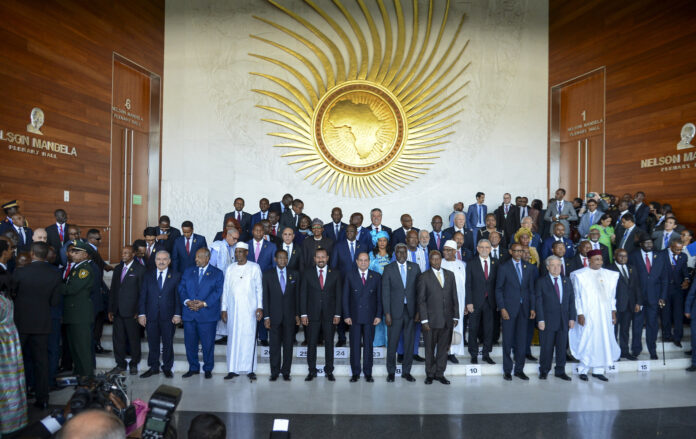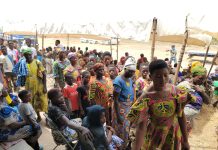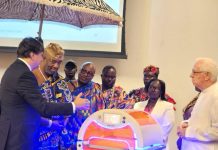
ABIDJAN, Ivory Coast, October 5, 2021/ — An African Development Bank delegation (www.AfDB.org) led by Abdul Kamara, Deputy Director-General of the East Africa Region, is taking part in a validation workshop for the African Union’s (UA) second Biennial Continental Report on Agenda 2063, held from 20 September to 6 October in the Zimbabwean capital Harare.
The aim of this meeting is to monitor, examine and consolidate national reports on Agenda 2063 for preparation and finalization of the report, which will be presented to the Member States and the next AU summit, in February 2022.
The Bank has contributed to this process through the Joint Secretariat Support Office, in its capacity as a member of the joint technical working group for the monitoring and evaluation of Agenda 2063. The Joint Secretariat Support Office comprises the AU Commission, UN Economic Commission for Africa and the African Development Bank.
The technical group is responsible for monitoring and evaluation, scrutiny and reporting on the progress made in the implementation of Agenda 2063. Its methodology is based on a manual of well-designed indicators distributed to the 54 Member States of the AU.
Abdul Kamara commented: “The meeting offers the Bank an opportunity to contribute to the process by presenting the continent-wide results and impacts of the High 5s. This will help to highlight the key role of the Bank in achieving the objectives of Agenda 2063 and its willingness to fully commit to the process with the objective of transformational development across the continent.” The High 5s are the Bank’s strategic priorities that guide its development agenda in Africa.
The African Development Bank also provided capacity-building support for the Member States and regional economic communities to create reliable, high-quality benchmarks and dashboards on the implementation of the flagship programmes of Agenda 2063, in addition to work on targets and related objectives.
The Bank has made several contributions to Agenda 2063, showing its ongoing commitment to the preparation and finalization of Agenda 2063 and the first ten-year implementation plan, particularly through the creation of the joint technical team for monitoring and evaluating Agenda 2063.
This team is made up of members of the African Union Commission, the United Nations Economic Commission for Africa, the African Development Bank, the RECs, the African Capacity Building Foundation, the New Partnership for Africa’s Development and the African Union Development Agency (NEPAD-AUDA).
Thus, the Bank has supported the implementation of Agenda 2063 not only by drafting and finalizing the terms of reference for the Agenda 2063 joint technical team but also by revising and refining the Agenda 2063 monitoring and evaluation framework and manual of core indicators.
The Bank also supported the drafting and finalizing of the first biennial report on the implementation of Agenda 2063 at the continental level.
Agenda 2063, adopted in 2015, pursues the objective of a “prosperous Africa based on inclusive growth and sustainable development”, with agriculture that contributes to collective food security, with natural endowments valued and preserved and with climate-resilient economies and communities.
It is strongly aligned with the Bank’s High 5 strategic priorities. According to the United Nations Development Programme, implementation of the High 5s will contribute to the achievement of around 90% of Agenda 2063 and the Sustainable Development Goals.
The African Development Bank has played a major role in implementing the African Continental Free Trade Area (AfCFTA), in operation since January 2021, for an intensification of intra-African trade in goods and services with a potential market of 1.2 billion consumers. In 2021, the Bank increased its investments in climate adaptation to 63%. It is the executing agency of the Programme for Infrastructure Development in Africa, led by the AU Commission, the NEPAD Secretariat and the Bank.
In 2019, 1,417 kilometres of roads, including 974 kilometres in low-income countries, were built, renovated or maintained with African Development Bank support. Lastly, at the outbreak of the Covid-19 pandemic, the Bank mobilized a fund of $10 billion to strengthen the resilience of African economies and mitigate the impact of the pandemic on populations.
Distributed by APO Group on behalf of African Development Bank Group (AfDB).











































